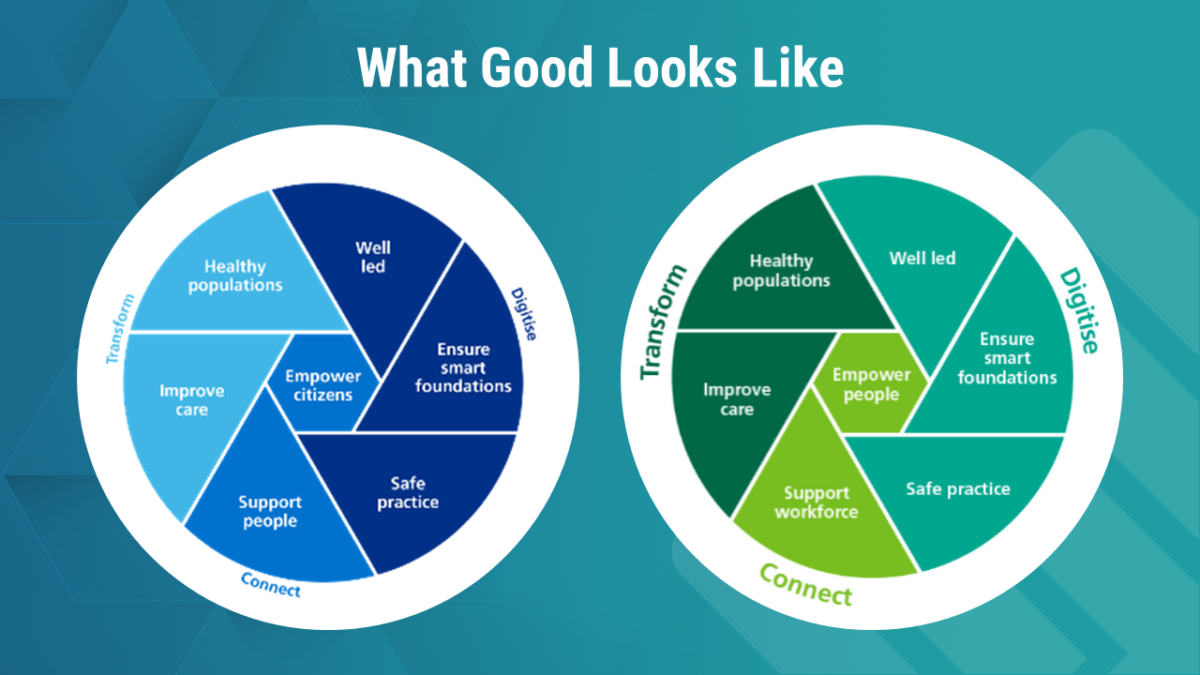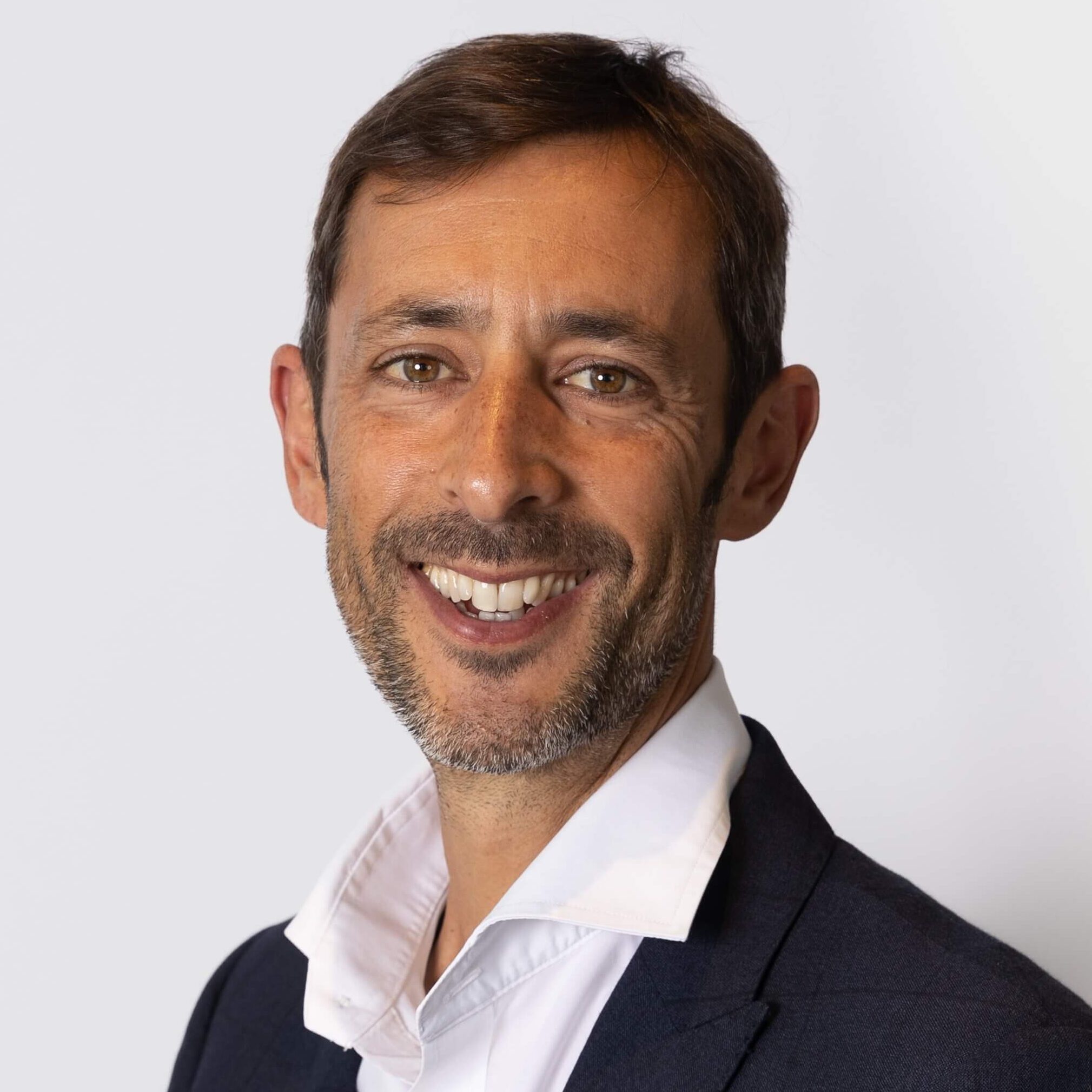In 2021 the NHS England Transformation Directorate produced What Good Looks Like, which described how integrated care boards (ICBs) should work together to enable care providers to connect and transform services, using technology and data. In 2023 we now have a very similar initiative in adult social care (ASC). What can we learn from DHSC, what are the differences in approach for digital social care and how do we think services will improve because of this renewed impetus to use technology more effectively in local government?
Background of WGLL and what it means for digital social care
WGLL, as it affectionately became known, came at a time when the care agenda was dominated by the reorganisation of services, to join them up more effectively. This resulted in the creation of ICSs. So, it is no surprise that the strapline behind WGLL was a call to digitise, connect and transform. This reflected the fact that the NHS needed to get off paper and share data better. Only then could it really deliver a step change in making services clinically and operationally better. It wasn’t just the NHS that had issues. Local government has suffered from an historic under-investment in technology and so ICSs had work to do to support local authorities to join in the transformation. WGLL was followed by Who Pays for What (WPFW), which was the question on the lips of many people who bought into the vision of joining up care but were unsure how it would be funded.
We have learned a lot since 2021 and there have been some great achievements in, for example, the way organisations are digitising, connecting and transforming services using data that is following people as they traverse health and social care in shared care records. The Front-Line Digitisation initiative has not yet delivered on its promise to enable improvements in electronic patient records and other important pieces of NHS technology – but it is on its way. This is creating new opportunities to address some of our most difficult issues, as we try and join-up care. WGLL and WPFW were born in the NHS and the adult social care version of WGLL is defining what needs to be done in care so local government can be an equal partner in the transformation journey.
Comparing WGLL with WGLL
At face value, the documents are very similar – with a green wheel for the government and a blue one for the NHS. However, the ASC version is very much focused on the challenges of joining up care, from an ASC perspective, and it specifically calls out the need to support the workforce so that people feel more empowered. Having the right staff to run services is a global challenge – as is managing demand for services and enabling people to do more to help themselves. Nowhere more so than in social care.

Consider the 7 areas the ASC transformation needs to focus on:
- Well led: We know that the gap between digital literacy and confidence in social care hinders progress, and that ambitious and effective leadership is an important condition for success. It will be important for ASC to benefit from the same degree of digital leadership, impetus and investment in leadership that the NHS has – within digital disciplines and across a tech-savvy workforce.
- Smart foundations: There are some incredible initiatives in local government, such as work in Leeds on the discharge-to-assess app, but the harsh reality is that there has been an under-investment in getting the basics right across all providers of local care services. Although progress is being made (e.g. the digitising social care programme) the sector needs to make investment in digital foundations a higher priority to enable the innovation that is required.
- Safe practice: Social care is fundamentally about people – not technology. Frontline teams can be cynical or nervous about adopting technology and often point to concerns about high-quality and safe practice to support this view. Yet there is often a greater hidden risk in a system that cannot always respond in a timely fashion or where data and systems are not joined up around the person. Digital can improve safe practice, improve the quality of care and improve outcomes, if the sector can embrace it.
- Support workforce: The ASC workforce is under huge pressure due to a lack of staff and increasing demand. This has led to a high reliance on temporary staff, which brings its own challenges. Improving productivity, resilience, wellbeing and capacity at the frontline is often top of the priority list for system leaders. However, the typical response to this challenge is to try and recruit more staff. The reality is that the sector will never have enough care staff to support the demands of an ageing population. Digital provides an alternative way forward. This is also true in the NHS, where initiatives like the NHS Staff App and Staff Passport are attempting to address this and working alongside localised procurement of smarter staffing technology. Technology needs to be an extra pair of hands, not a set of handcuffs.
- Empower people: People who use adult social care services can and should be empowered to self-manage the situation they find themselves in. If they have access to data, technology and digital services then they can remain independent for longer, improve their experience of the care system and achieve improved outcomes. All of which ultimately costs the sector less. However, getting this right will require an improved focus on co-production and user-centred design, both of which are getting significant traction across the sector but are yet to be fully formed or embedded.
- Improve care: Improving care means different things in government and the NHS. In social care the demands are different, the supply of services is far more fragmented and subject to different challenges. As a result, the solutions need to be similar but different. Digital can significantly improve the quality of care people receive, something that will motivate frontline staff to engage in and embrace digital transformation.
- Healthy populations: Public health responsibilities have switched between health and care organisations over recent years. Housing, crime, education, work and environment all influence health, and councils have specific responsibilities in these areas. This means that ASC professionals often need to look more widely across society, as they mitigate risks to population health, than, say, acute hospitals. Digital can actively support the joining up of data and insight, helping to bring often siloed services together around the person and ultimately effecting improved outcomes.
What this will mean for digital social care
Taking a practical example such as hospital discharge, the most tangible interface between health and care, we can begin to see how the WGLL framework can help the sector innovate and transform.
An ambition to drive cultural change tempered with pragmatism will unlock the power of digital.
Improving underlying technology creates the basis for innovation.
Use technology to prevent people from being lost in the system or stuck in a process.
Simplifying and digitising processes enables staff to be more productive and reduces strain.
People want more control over their lives and digital enables this.
There are areas where analogue processes can be quickly digitised to create impact, at scale, quickly.
Understanding need and managing well-being closer to home is key to reducing demand on services.
In this sense, WGLL for ASC is almost a double-click on 2021’s WGLL as it digs into the challenges faced by a set of services that are important pillars of a joined-up care system. It is an important tool in helping the sector understand the digital transformation and maturity journey it needs to embark upon if we are to realise the significant benefits that digital presents. The key will be to help the sector use the tool in a practical way, to support continued investment in digital to disrupt traditional ways of working and create a more sustainable model of health and care that is fit for the 21st century.
About the authors

Ralph Cook
Ralph has over 20 years of consulting experience within the public sector, designing and delivering complex transformation programmes across health and social care. Ralph has helped the sector pioneer thinking in the areas of demand management, sustainable change in complex systems, behavioural science and intermediate care.
